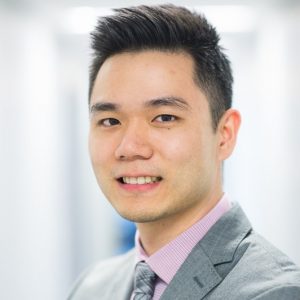Pharmaceutical Care in Aboriginal Health with Larry Leung and Jason Min
Faculty of Pharmaceutical Sciences – PHAR 457: Pharmaceutical Care in Aboriginal Health
What are some of the key learning outcomes for this course?
The global goal of this course is for students to work effectively, respectfully and collaboratively with Aboriginal peoples in the context of providing culturally-safe pharmaceutical care. Other outcomes include self-reflection and growth of cultural humility, de-colonizing the negative lens with the Aboriginal voice, understanding the historical context and generational issues that occur in Aboriginal health in Canada, enhancing library search skills specific to research in Aboriginal health, and exploring successes and challenges seen in selected health topics in the Aboriginal population.
“Students get to see from the perspective of a knowledge keeper… what medicine means from an aboriginal perspective; how they use the land for healing purposes.”
How has the UBC Farm assisted you in meeting these specific learning outcomes?
The UBC Farm and the Traditional Medicines Walk has been a source of tremendous knowledge for our students while also providing an immersive and impactful experience. Students enrolled in PHAR 457 spend an hour and a half at the UBC Farm and participate in activities including: a song and smudging ceremony, a review and walk-through of the Indigenous plant exhibit led by a knowledge keeper, and an individual activity that highlights the different plants including medicinal/traditional uses, taste, smell and other identifying features.
The decision to bring students to the UBC Farm is made easy by the willingness and availability of the knowledge keepers who are able to share their expertise. Pharmacy students are exposed to natural health products elsewhere in the curriculum, but never with the Aboriginal voice in a holistic and immersive view.
“The experience with the knowledge keeper and Farm is amazing. Students are so excited to see and physically touch and taste the natural medicines that they learn about in class. This creates a very visceral experience that brings the classroom to life.”
What curricula material, activities or approaches do you utilize in this course that further develop students’ learning of the key learning outcomes?
We use a variety of different approaches to diversify our student learning experience including:
- Educational trips (e.g. UBC Farm, Museum of Anthropology, Xwi7xwa Library)
- Podcasts and video recordings made specifically for the class (e.g. library search tutorial, impact of colonialism on health
- Live, technology-enabled video conferences with elders and community members across BC
- Guest lecturers from knowledge keepers and experts
- Student-led and peer-marked journal clubs
- Reflexive photography assignment to build self-awareness and growth of cultural competency
- Community-based final projects that are linked to current opportunities available upon graduation from the First Nations Health Authority
 Larry Leung, BSC (Pharm), RPH, Lecturer
Larry Leung, BSC (Pharm), RPH, Lecturer
Larry is a lecturer and pharmacist in the Faculty of Pharmaceutical Sciences at UBC. As a pharmacist, he works at the Faculty’s Pharmacists Clinic, a licensed, pharmacist-led patient care clinic. His responsibilities include providing direct patient care and leading innovative projects in collaboration with First Nations communities in British Columbia. As a lecturer, his academic interests include interprofessional education, Aboriginal health, and contemporary issues in pharmacy practice.
 Jason Min, BSC (Pharm), RPH, Lecturer
Jason Min, BSC (Pharm), RPH, Lecturer
Jason joined the Faculty of Pharmaceutical Sciences at UBC in 2013 in both an academic role and as a pharmacist clinician with the Pharmacists Clinic. Having coordinated and lectured a variety of topics, Jason’s academic areas of interest include First Nations health, interprofessional team-based care, and technology in health care. In his work, Jason specializes in developing, implementing, and managing innovative community pharmacy services and team-based care.
Comments are closed, but trackbacks and pingbacks are open.